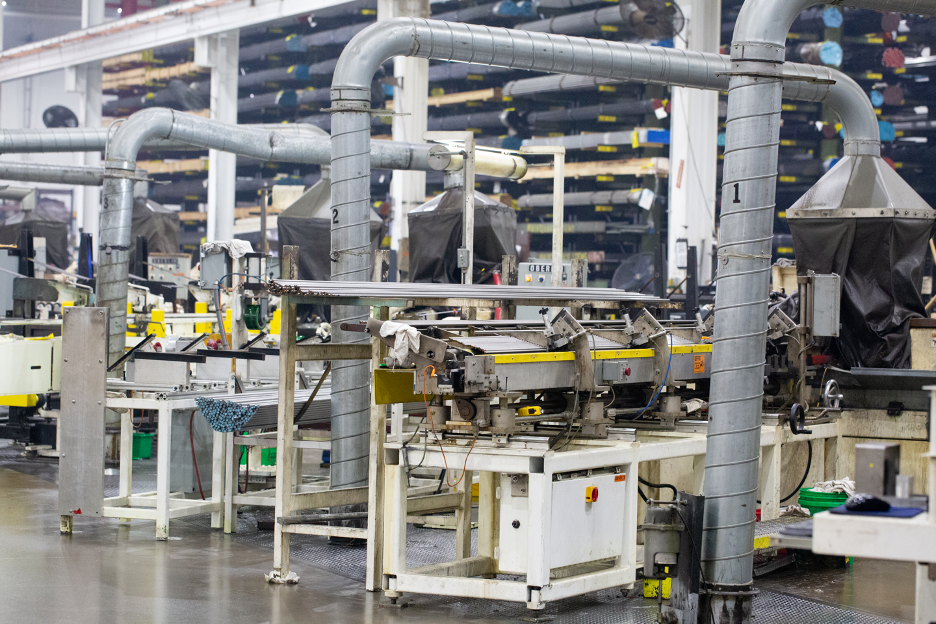Chemical milling is a process that has gained popularity in various industries due to its versatility and wide range of applications. From aerospace to electronics, this technique has proven to be an effective method for producing high-precision components with intricate designs.
Below, this chemical milling company in Atlanta, Georgia is going to delve into the world of chemical milling, exploring its definition, applications, benefits, and the materials commonly used.
An Introduction to Chemical Milling
Chemical milling, also known as chemical etching or chemical machining, is a subtractive manufacturing process that involves selectively removing material from a metal sheet using various etchants. This technique allows for the precise and controlled removal of material, resulting in intricate patterns, shapes, and designs.
The process begins by applying a mask or resist material onto the metal sheet, protecting the areas that need to be preserved. The sheet is then immersed in an etchant solution that selectively dissolves the exposed areas, leaving behind the desired features.
Uses Across Various Industries
Chemical milling is commonly used in industries such as aerospace, electronics, automotive, and medical devices. In the aerospace industry, chemical milling is used to manufacture lightweight components such as aircraft skins, wing ribs, and engine parts.
The process allows for the removal of excess material, which reduces weight while maintaining structural integrity. In the electronics industry, chemical milling is employed to produce printed circuit boards (PCBs) with intricate patterns and precise tolerances.
The automotive industry utilizes chemical milling for manufacturing engine components, transmission parts, and decorative trim pieces. In the medical field, chemical milling is utilized to fabricate surgical instruments, orthopedic implants, and dental prosthetics.
Applications and Benefits of Chemical Milling
One of the primary applications and benefits of chemical milling is the production of intricate and complex parts with high precision. This technique allows chemical milling companies in Atlanta, Georgia to create intricate designs, patterns, and features that cannot be easily achieved through conventional machining methods.
Additionally, chemical milling is a cost-effective manufacturing process, as it eliminates the need for expensive tooling and reduces material waste. The chemical milling process also offers superior surface finishing, with the ability to achieve smooth and uniform surfaces that are free from burrs and imperfections. The process minimizes material waste, as it selectively removes material only from the desired areas and requires minimal post-processing enhancements.
Materials Commonly Used in Chemical Milling
Most chemical milling companies in Atlanta, Georgia work with a wide range of materials, including various metals and alloys. Some of the commonly used materials in chemical milling include aluminum, stainless steel, titanium, copper, brass, and nickel alloys. Each material has its unique properties and characteristics, making it suitable for specific applications.
Aluminum, for example, is often used in the aerospace industry due to its lightweight and corrosion-resistant properties. Stainless steel is preferred in applications that require high strength and durability. Titanium is commonly used in the medical field due to its biocompatibility and excellent corrosion resistance. Your choice of material will ultimately depend on the desired characteristics, application requirements, and the expertise of the chemical milling company.
Looking for a Chemical Milling Company in Atlanta, Georgia?
Are you ready to partner with the best chemical milling company in Atlanta, Georgia? If so, Supra Alloys is the top choice. With over 30 years of experience in the industry, we have established ourselves as a leading provider of chemical milling services. We work with a wide range of metals and alloys, offering high-precision chemical milling solutions that can be tailored to your specific requirements.
Contact us today at 1-888-647-8772 to learn how we can help.


